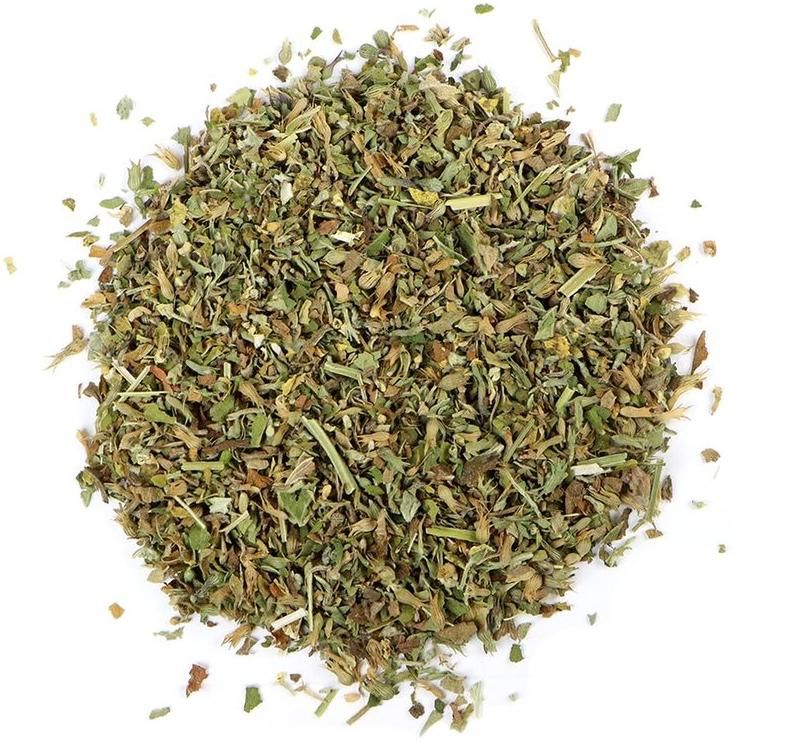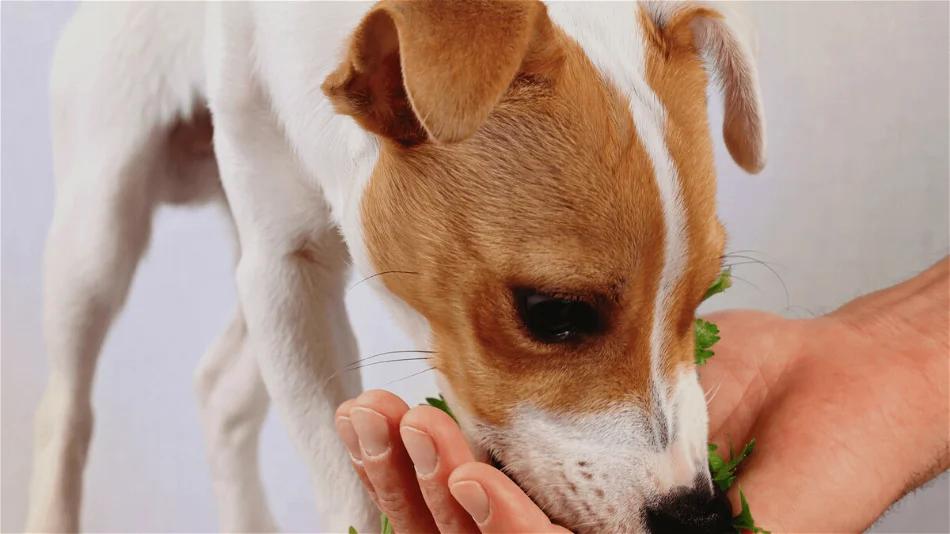What Are The Effects Of Catnip On Dogs?
What Are The Effects Of Catnip On Dogs?

Vet Reviewed

By: Sarah Hodgson
February 15, 2024
Table of Contents
Key Takeaways
Catnip is not just for cats, some dogs may also enjoy this herb.
Catnip can have both positive and negative effects on dogs.
It is important to understand the safety and toxicity concerns related to catnip consumption in dogs.
So if you didn't know catnip is safe for dogs. It's not just for our feline friends. Not just that some dog owners have reported that their dogs also seem to enjoy this herb but what exactly are the effects it plays on dogs?
In this article, we will take a closer look at the effects of catnip on dogs. So let's dive in!
Does Catnip Affect Dogs?
The answer is yes, catnip can have an effect on dogs, but it is not the same as the effect it has on cats.
Catnip is known for its effects on cats, but it can also have an impact on other animals, including dogs. When ingested or inhaled, catnip can cause a range of reactions, including increased activity, rolling, rubbing, and vocalization. However, not all animals are affected by catnip, and the extent of the effects can vary depending on the individual animal and type.
In dogs, the effects of catnip are generally less pronounced than in cats. While some dogs may show signs of increased activity or interest in catnip, others may not react at all.
It is important to note that catnip is not toxic to dogs, but it should still be used with caution and under the guidance of a veterinarian.

What Are The Effects Of Catnip On Dogs?
When exposed to catnip, dogs may exhibit a range of behaviors. Some dogs may show no interest in the herb at all, while others may become excited or curious. Some dogs may even become relaxed or sleepy after exposure to catnip.
Some of the main effects include:
- Intestinal Comfort: Catnip has been traditionally used to relieve intestinal discomfort in both humans and animals. It may help soothe digestive issues such as gas, bloating, and mild stomach upset.
- Healing Wounds: Some studies suggest that catnip possesses antiseptic properties that can aid in wound healing when applied topically. It may help cleanse wounds and prevent infection.
- Diuretic: Catnip has diuretic properties, meaning it can increase urine production and help flush out toxins from the body. This can be beneficial for supporting kidney function and reducing water retention.
- Alleviates Anxiety: Catnip is known for its calming effects on the nervous system. It contains compounds that can help reduce anxiety and promote relaxation in both humans and animals.
- Natural Pest Repellent: The strong scent of catnip is a natural repellent for certain pests, including mosquitoes, cockroaches, and termites. It can be used as a safe and non-toxic alternative to chemical insect repellents.
- Sedative: Catnip has mild sedative properties that can help induce relaxation and sleepiness. It is often used to calm hyperactive pets or promote restful sleep.
- Antiseptic: Catnip contains compounds with antiseptic properties that can help prevent infection when applied to minor cuts, scrapes, or insect bites.
- Easing Menstruation: In some traditional medicine practices, catnip has been used to ease menstrual discomfort in women. It may help alleviate cramps and promote relaxation during menstruation.
- Improved Sleep: Catnip's calming effects may contribute to improved sleep quality in both humans and animals. It can help induce relaxation and reduce insomnia symptoms.
- Motion Sickness: Catnip has been suggested as a natural remedy for motion sickness in some cases. It may help alleviate nausea and vomiting associated with motion sickness.
- Repels Insects: In addition to its insect-repelling properties mentioned earlier, catnip can also help repel insects when applied to the skin or placed around living areas.
- Stomach Discomfort: Catnip may help alleviate various forms of stomach discomfort, including indigestion, nausea, and mild gastrointestinal issues.
Note
It is important to note that not all dogs will have a reaction to catnip, and those that do may have varying degrees of response. Additionally, the effects of catnip on dogs may not be as long-lasting as they are in cats.
Comparison with Feline Reaction
While the effects of catnip on dogs may differ from those on cats, there are some similarities. Both cats and dogs may exhibit increased playfulness or curiosity after exposure to catnip. However, the effects on cats are generally more pronounced and longer-lasting.
It is also worth noting that while catnip is generally considered safe for cats, its effects on dogs have not been extensively studied. As such, it is recommended that dog owners exercise caution when giving their dogs catnip and monitor their reactions closely.
In conclusion, while catnip can have an effect on dogs, it is not as pronounced or long-lasting as it is in cats. Dog owners should exercise caution when giving their dogs catnip and monitor their reactions closely.
Potential Effects
Catnip is known for its effects on cats, but what about dogs? While cats typically respond to catnip with excitement and playfulness, the effects on dogs can be quite different.
Behavioral Changes in Dogs
Some dogs may become more relaxed or sleepy after exposure to catnip, while others may become more excitable or agitated. It is important to monitor your dog's behavior closely after giving them catnip, especially if it is their first time experiencing it.
Physical Reactions
In addition to behavioral changes, some dogs may experience physical reactions to catnip. These can include dilated pupils, increased heart rate, and drooling. It is important to note that these reactions are typically mild and short-lived, but if you notice any concerning symptoms, it is best to consult with a veterinarian.
Overall, the effects of catnip on dogs can vary greatly from one individual to another. While some dogs may enjoy the experience, others may not respond at all or may have negative reactions. As with any new experience for your pet, it is important to introduce catnip slowly and monitor your dog's behavior and physical reactions closely.

Alternative Uses
Catnip is not only for cats. It can also have alternative uses for dogs. In this section, we will discuss the therapeutic benefits and training aid potential of catnip for dogs.
Therapeutic Benefits
Catnip has been known to have calming effects on cats, and it can have similar effects on dogs. When dogs are feeling anxious or stressed, catnip can be used as a natural remedy to help them relax. The compound nepetalactone found in catnip can have a sedative effect on dogs, making it a useful tool for calming them down.
Additionally, catnip can also be used to alleviate nausea and vomiting in dogs. It can help stimulate their appetite and relieve stomach discomfort. However, it is important to note that catnip should not be used as a substitute for veterinary care. If your dog is experiencing severe or persistent symptoms, it is best to consult with a veterinarian.
Training Aid Potential
Catnip can also be used as a training aid for dogs. When used in moderation, it can help encourage positive behavior and reinforce training commands. For example, if your dog is struggling with crate training, you can sprinkle a small amount of catnip in their crate to make it a more appealing and comfortable space for them.
Similarly, if your dog is struggling with obedience training, you can use catnip as a reward for good behavior. This can help motivate your dog to follow commands and reinforce positive behavior. However, it is important to use catnip in moderation and not rely solely on it as a training aid.
Overall, catnip can have alternative uses for dogs beyond just being a treat for cats. It can have therapeutic benefits for calming and relieving stomach discomfort, as well as training aid potential for encouraging positive behavior.

The Bottom Line
So there you have it, catnip can have an effect on dogs, although it may not be as pronounced or common as in cats. While catnip is generally safe for dogs to consume, it is important to introduce it gradually and in moderation. Monitoring your dog's reaction and consulting with your veterinarian will help ensure that catnip is a suitable enrichment option for your furry friend.
Remember to always prioritize your dog's safety and well-being when introducing new substances or activities into their routine.
Frequently Asked Questions
How does catnip affect a dog's behavior?
Catnip has a different effect on dogs than it does on cats. While cats may become excited or even hyperactive after exposure to catnip, dogs tend to have a more relaxed reaction. Some dogs may become more playful or curious, while others may become calm or even sleepy.
What is the duration of catnip's effects on dogs?
The effects of catnip on dogs can vary depending on the individual dog and the amount of catnip consumed. In general, the effects of catnip tend to last between 5 and 30 minutes. After the initial effects wear off, some dogs may become more relaxed or sleepy.
Is there any benefit to giving dogs catnip for anxiety?
While catnip is not typically used as a treatment for anxiety in dogs, some pet owners have reported that their dogs seem to be more relaxed or calm after exposure to catnip. However, more research is needed to determine whether catnip can be an effective treatment for anxiety in dogs.
Does catnip have the same effect on dogs as it does on cats?
No, catnip has a different effect on dogs than it does on cats. While cats may become excited or hyperactive after exposure to catnip, dogs tend to have a more relaxed reaction. Some dogs may become more playful or curious, while others may become calm or even sleepy.

Subscribe to Petfluence!
Get updates on the latest posts and more from Petfluence straight to your inbox.